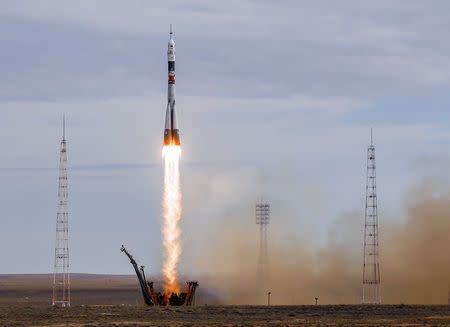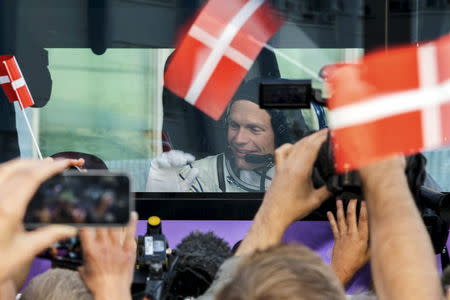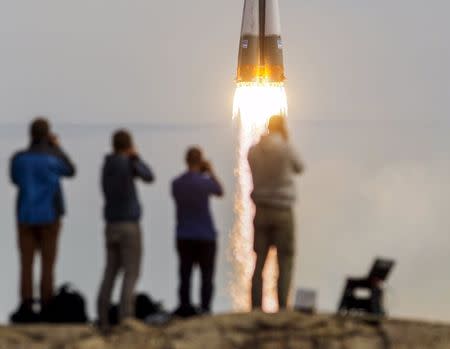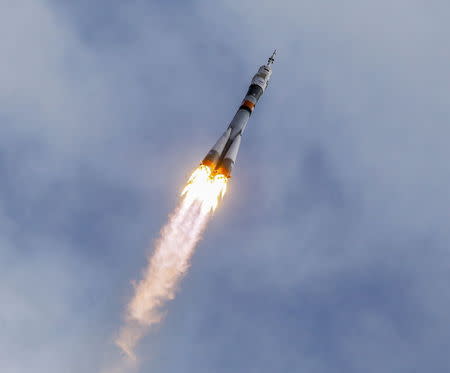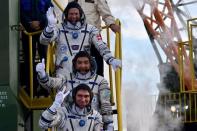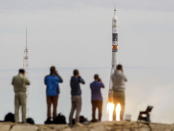Rocket with 'Denmark's Gagarin' lifts off to space station
By Shamil Zhumatov BAIKONUR, Kazakhstan (Reuters) - A Russian Soyuz rocket carrying a three-man international crew, including Denmark's first astronaut, roared off on Wednesday from the Baikonur Cosmodrome in Kazakhstan, beginning a two-day journey to the International Space Station (ISS). The rocket carrying the Soyuz TMA-18M spaceship lifted off to the $100 billion orbiting laboratory at 10:37 a.m. (0437 GMT), leaving just a puff of white smoke in the sky. The crew is commanded by veteran Russian cosmonaut Sergei Volkov, joined by rookie Andreas Mogensen from the European Space Agency (ESA) and Aidyn Aimbetov, another first-time space flyer from Kazakhstan's space agency Kazcosmos. ESA dubbed Mogensen "Denmark's Gagarin", a reference to the Soviet cosmonaut and first man in space, Yuri Gagarin. The Dane told a pre-flight news conference on Tuesday that he had shaved his right leg to allow Volkov to better apply electrodes during scientific experiments in space. One of Mogensen's jobs will be to test new equipment on Danish-made exercise bikes, ESA said. The Danish exercise bikes - with no seats as none is needed in gravity-free conditions - were launched in 2001 and have been replaced or upgraded several times since. They help astronauts battle the negative impact weightlessness. Aimbetov, the third ethnic Kazakh in space, said he was taking dried mare's milk and traditional Kazakh cheese to orbit. Fermented mare's milk, or "kymyz", is popular among nomadic cultures of Central Asia. While in space, he will wear a special dosimeter to study the effects of space radiation on the brain. Volkov is the first son of a cosmonaut who has flown to the 15-nation space outpost. "It's our family tradition already to carry Kazakhs into space," joked Volkov, whose father, Alexander Volkov, commanded a Soyuz spaceship that took the first-ever Kazakh cosmonaut, Tokhtar Aubakirov, into space in 1991. Mogensen and Aimbetov are set to return to Earth on Sept. 12, together with veteran Russian cosmonaut Gennady Padalka, 57, who has been working aboard the ISS since March. By then, Padalka will have racked up a total of 878 days in space, more than any other person. Volkov will return to Earth in March together with NASA astronaut Scott Kelly and Russian Mikhail Kornienko, who will have spent one year in space by that time. The Soyuz rocket will take two days to reach the ISS, rather than a six-hour approach usually taken in recent years. Russia's Roscosmos space agency said the altitude of the station, boosted in July to avoid space debris, requires the slower approach. (Additional reporting by Sabina Zawadzki in Copenhagen and Irene Klotz from Cape Canaveral; Writing by Dmitry Solovyov; Editing by Robert Birsel)

